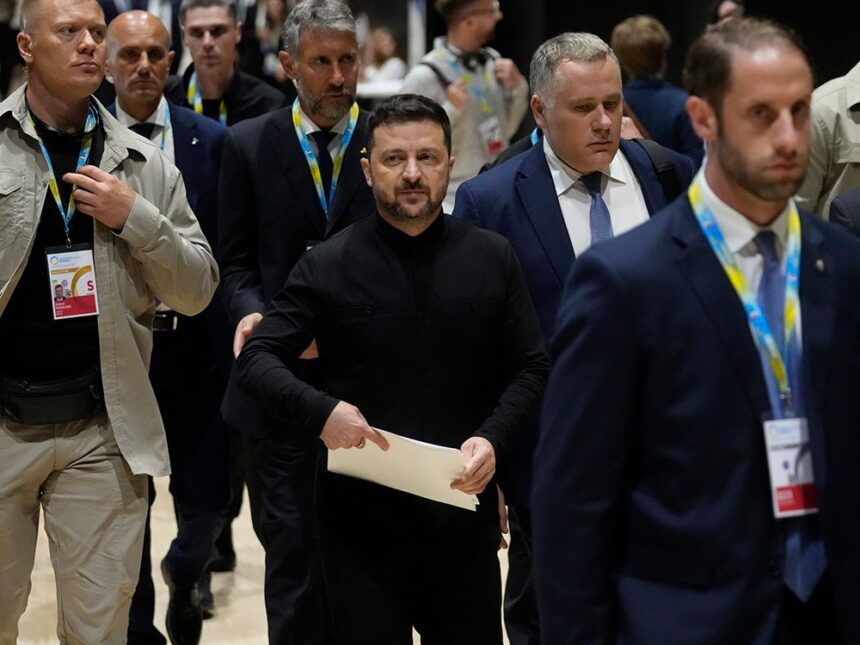As I stand on the rain-slicked streets of Kyiv, the sound of air raid sirens punctuates what would otherwise be a normal Tuesday morning. This is the backdrop against which Ukrainian officials are preparing for what might be the most consequential rebuilding effort in modern European history—while still under active bombardment.
“We’re planning the reconstruction of bridges that were destroyed yesterday,” explains Oleksandra Matviichuk, who heads a local infrastructure NGO. “Meanwhile, we’re watching new targets being hit today. It’s like trying to fill a bathtub while someone keeps pulling the plug.”
The upcoming Ukraine Reconstruction Conference 2024, set for Berlin this June, represents the third major international gathering focused on rebuilding Ukraine since Russia’s full-scale invasion began in February 2022. What distinguishes this effort is its scope and timing—occurring as Western resolve faces increasing strain and Ukraine enters its third year of defending its sovereignty.
The National Bank of Ukraine estimates reconstruction needs already exceed $486 billion—a figure that grows with each missile strike on civilian infrastructure. This staggering sum represents more than three times Ukraine’s pre-war annual GDP.
At the State Department last week, Secretary Antony Blinken emphasized America’s commitment to the reconstruction effort. “This isn’t charity—it’s an investment in European security and democratic resilience,” he said during a closed-door meeting with European counterparts that I attended. Behind the diplomatic language, sources present revealed tensions over burden-sharing that have intensified since the U.S. aid package stalled in Congress.
The World Bank, European Commission, and Ukrainian government have established the multi-agency Recovery and Development Platform, creating what EU Commission President Ursula von der Leyen called “a transparent mechanism for marshaling international support.” However, the platform faces significant challenges in coordinating efforts across dozens of countries and hundreds of organizations.
German Chancellor Olaf Scholz, whose government will host the June conference, has advocated for using frozen Russian assets to fund reconstruction. “Those who destroy must pay for rebuilding,” he stated during a recent press conference in Berlin. This approach, while politically popular, faces complex legal hurdles under international law.
The most immediate challenge may be psychological rather than financial. “How do you convince investors to commit billions to rebuilding infrastructure that might be destroyed tomorrow?” asks Martin Raiser, World Bank Vice President for Europe and Central Asia. “The risk calculation is unprecedented in modern development work.”
Walking through Irpin, a Kyiv suburb devastated in the war’s early months, I meet Olena Petrenko outside her partially rebuilt apartment building. “They’re talking about billions while we’re just trying to fix our windows before winter,” she says, pointing to plastic sheeting covering a hole where her balcony once stood. “Sometimes it feels like we’re planning for a future that might never come.”
Yet despite the uncertainty, significant reconstruction is already underway. The European Bank for Reconstruction and Development has committed €3 billion to Ukrainian infrastructure projects since 2022, focusing on energy resilience and transportation networks. “We’re not waiting for the war to end,” explains Charlotte Ruhe, EBRD Managing Director. “Some rebuilding simply cannot wait.”
American officials have privately expressed concerns about corruption undermining reconstruction efforts. Ukraine’s pre-war reputation for governmental corruption has prompted extensive oversight mechanisms for international aid. Ukrainian President Volodymyr Zelensky has responded by implementing a digital tracking system for reconstruction funds—what his administration calls “rebuilding with transparency.”
“Every dollar, every euro that comes for rebuilding will be traced from donor to final use,” promised Denys Shmyhal, Ukraine’s Prime Minister, during a recent economic forum. This level of scrutiny represents both a practical necessity and a symbolic commitment to the governance reforms Ukraine needs for eventual EU membership.
The human dimension of reconstruction extends beyond physical infrastructure. Dr. Irina Kostyuk, who directs a trauma center in Lviv, describes what she calls “the invisible rebuilding” needed alongside physical reconstruction. “We’re treating thousands with PTSD, including children who have known nothing but war. Rebuilding their sense of safety may take generations.”
As conference preparations continue, Ukrainian officials emphasize that reconstruction isn’t just about restoring what existed before but building something more resilient. Plans include decentralized energy systems less vulnerable to missile strikes, modernized transportation networks, and digitalized government services.
“When we rebuild, we’re not just replacing Soviet-era infrastructure with identical systems,” explains Oleksiy Kuleba, head of Kyiv’s regional administration. “We’re reimagining a European Ukraine that can withstand both military and economic challenges.”
For ordinary Ukrainians like Dmytro Kovalenko, a construction worker I met repairing a school in Kharkiv, the high-level diplomatic discussions seem distant. “I hear about billions being pledged, but I’m still using my own tools,” he says, adjusting his hard hat as the sound of distant artillery echoes. “But we keep building anyway. What choice do we have?”
As the June conference approaches, the fundamental question remains unanswered: how to rebuild a nation while it remains under attack. The answer will require not just financial commitments but sustained political will from Ukraine’s partners—a test of whether the democratic world’s support extends beyond the immediate battlefield to the generational project of ensuring Ukraine emerges from this war not just intact, but transformed.






